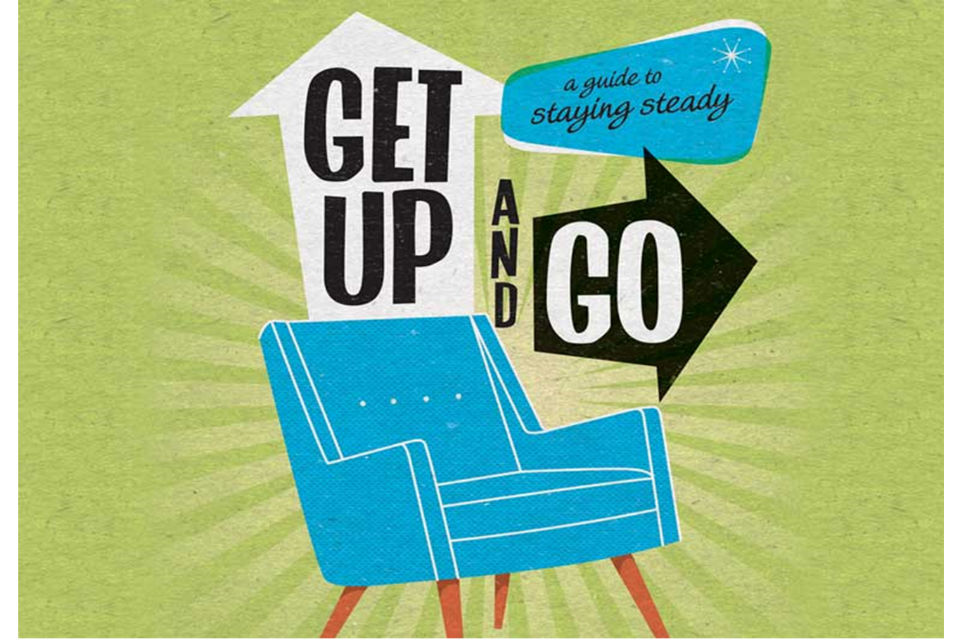Top Guidelines Of Dementia Fall Risk
Top Guidelines Of Dementia Fall Risk
Blog Article
Top Guidelines Of Dementia Fall Risk
Table of ContentsThe Buzz on Dementia Fall RiskThe Ultimate Guide To Dementia Fall RiskSome Known Details About Dementia Fall Risk Some Known Details About Dementia Fall Risk Dementia Fall Risk for Dummies
Analyzing fall danger aids the entire medical care team establish a much safer atmosphere for each client. Guarantee that there is a designated area in your clinical charting system where personnel can document/reference ratings and record relevant notes related to drop prevention. The Johns Hopkins Loss Danger Assessment Tool is just one of lots of tools your staff can make use of to assist protect against damaging medical events.Person falls in health centers prevail and incapacitating unfavorable occasions that linger in spite of years of effort to minimize them. Improving communication throughout the evaluating nurse, treatment team, patient, and person's most included family and friends may reinforce fall avoidance efforts. A group at Brigham and Female's Medical facility in Boston, Massachusetts, sought to develop a standardized loss prevention program that centered around boosted communication and patient and household engagement.

The innovation team stressed that successful application depends upon patient and personnel buy-in, assimilation of the program into existing process, and integrity to program procedures. The team kept in mind that they are facing how to make certain continuity in program execution during periods of situation. During the COVID-19 pandemic, for instance, a rise in inpatient falls was connected with limitations in person interaction together with constraints on visitation.
The 7-Second Trick For Dementia Fall Risk
These incidents are usually taken into consideration avoidable. To execute the intervention, organizations need the following: Access to Fall TIPS resources Fall TIPS training and re-training for nursing and non-nursing staff, including new registered nurses Nursing workflows that permit patient and family engagement to perform the falls assessment, guarantee use the avoidance strategy, and perform patient-level audits.
The outcomes can be extremely damaging, often accelerating person decrease and triggering longer medical facility remains. One research study estimated keeps boosted an extra 12 in-patient days after a patient fall. The Autumn TIPS Program is based on engaging patients and their family/loved ones throughout three primary processes: assessment, individualized preventative treatments, and bookkeeping to make sure that people are engaged in the three-step autumn avoidance process.
The patient analysis is based on the Morse Loss Range, which is a validated autumn danger analysis tool for in-patient health center settings. The range includes the 6 most typical factors clients in healthcare facilities fall: the individual fall background, risky conditions Get More Info (consisting of polypharmacy), use of IVs and various other external gadgets, psychological status, gait, and flexibility.
Each risk factor relate to several workable evidence-based interventions. The registered nurse creates a strategy that includes the interventions and shows up to the treatment team, person, and household on a laminated poster or published aesthetic aid. Registered nurses develop the strategy while consulting with the client and the person's family members.
What Does Dementia Fall Risk Do?
The poster acts as a communication tool with other members of the individual's treatment team. Dementia Fall Risk. The audit element of the program includes evaluating the client's knowledge of their danger review aspects and avoidance plan at the unit and healthcare facility levels. Nurse champs perform a minimum of 5 specific meetings a month with individuals and their households to look for understanding of the loss prevention plan

An approximated 30% of these drops lead to injuries, which can vary in seriousness. Unlike various other damaging events that require a standard professional feedback, autumn prevention depends highly on the needs of the patient. Consisting of the input of people who recognize the individual finest permits greater modification. This technique has shown to be more reliable than autumn prevention programs that are based primarily on the manufacturing of a threat rating and/or are not personalized.
Dementia Fall Risk - The Facts

Based upon auditing results, one site had 86% conformity and two websites had more than 95% compliance. A cost-benefit analysis of the Loss TIPS program in eight healthcare facilities estimated that the program cost $0.88 per individual to implement and resulted in financial savings of $8,500 per 1000 patient-days in direct expenses connected to the prevention of 567 tips over 3 years and 8 months.
According to the advancement group, companies interested in executing the program must carry out a preparedness analysis and drops avoidance gaps analysis. 8 Additionally, organizations must make certain the necessary facilities and process for execution and create an execution strategy. If one exists, the company's Loss Prevention Task Force ought to be associated with planning.
The Dementia Fall Risk Diaries
To begin, organizations should ensure completion of training modules by nurses and nursing aides - Dementia Fall Risk. Hospital team must evaluate, based on the demands of a medical facility, whether to utilize a digital health record printout or paper version of the autumn prevention strategy. Carrying out teams should hire and train registered nurse champs and develop processes for auditing and coverage on fall information
Personnel require to be associated with the process of redesigning the operations to engage patients and family members in the evaluation and avoidance plan procedure. Solution must be in area so that devices can understand why a loss happened and remediate the reason. Much more specifically, registered nurses ought to have networks to offer recurring feedback to both personnel and unit leadership so they can adjust and enhance autumn avoidance operations and connect systemic problems.
Report this page